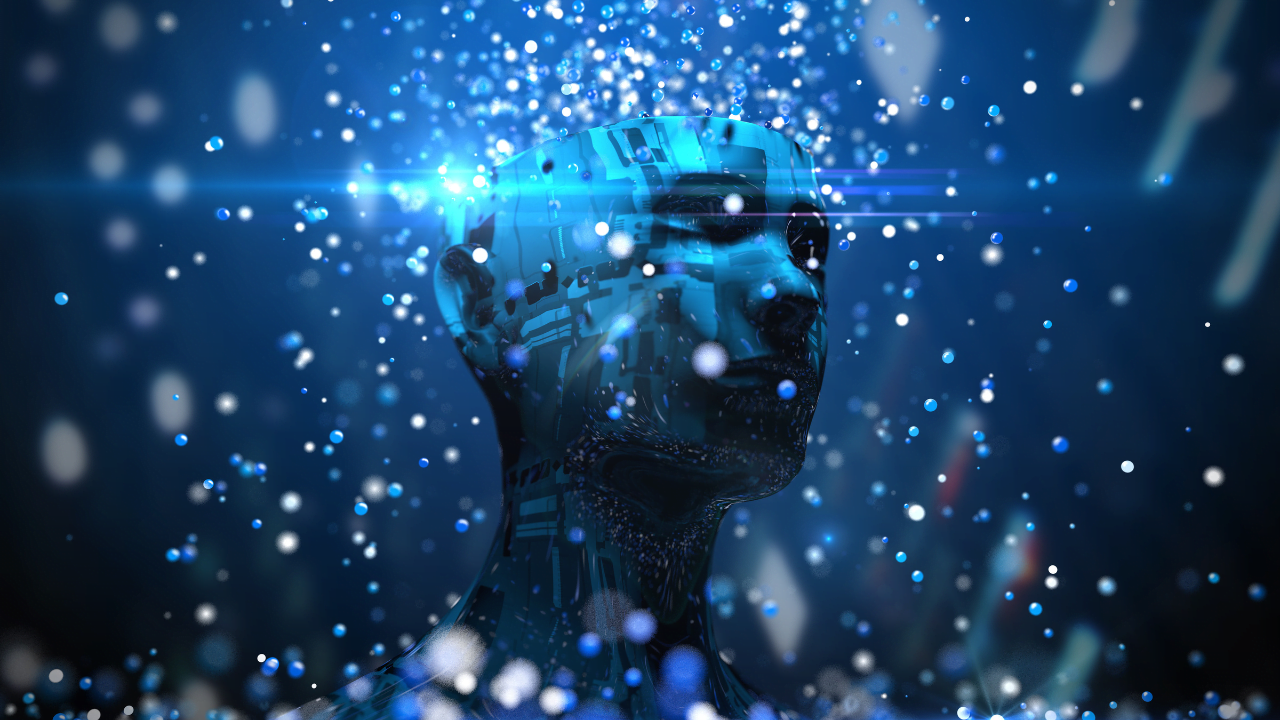No products in the cart.
Christianity and Artificial Intelligence: Ethical Considerations in Technology
This post contains paid and/or affiliate links. I make a small commission at no extra cost to you. Please see our Privacy Policy.
The intersection of Christianity and Artificial Intelligence (AI). In today’s technologically advancing world, AI has become significant in various aspects of human life, including religious settings. Christian religious communities have started exploring the use of AI in worship, counseling, and theological interpretations. However, this integration raises important ethical considerations that deserve our attention.
This article will identify and analyze the theological and ethical dangers associated with using AI in Christian religious settings. We will explore the potential for playing god, ethical dilemmas arising from AI decision-making, dehumanization and loss of dignity, impact on religious practices, and the potential for distorted theological concepts.
Key Takeaways:
- Integrating AI in Christian religious settings poses ethical dilemmas that require careful consideration.
- Playing god is a significant concern, raising questions about the boundaries of human agency and divine authority.
- AI decision-making processes may contradict religious or moral principles, leading to ethical dilemmas and questions of responsibility.
- AI integration can contribute to the devaluation of human life and the erosion of authentic human connection.
- Virtual experiences enabled by AI may raise questions about religious practices’ authenticity and spiritual significance.
Playing God: The Boundaries of Human Agency and Divine Authority
One significant concern regarding AI in Christian religious settings revolves around playing god. Critics argue that the creation of advanced AI systems with human-like intelligence can be viewed as humans attempting to assume God-like powers, potentially challenging divine authority and agency.
The concept of playing god raises questions about the boundaries of human agency and the limits of human creativity about God’s sovereignty.
Ethical Dilemmas in AI Decision-Making
When AI systems are involved in decision-making processes within sacred settings, ethical dilemmas arise that question human agency and the authority of God. These dilemmas stem from the potential for AI systems to make autonomous decisions that may contradict religious or moral principles.
With its ability to process visions based on algorithms and patterns, AI amounts data and makes decisions based on a different set of considerations than human reasoning. This fundamental difference introduces a tension between the decisions made by AI and the moral teachings and principles of Christianity.
In Christian religious settings, where ethical guidance is derived from scripture and theological traditions, the reliance on AI decision-making presents a challenge. The decisions made by AI systems may not always align with the Christian ethical framework, leading to ethical dilemmas that require careful navigation.
Accountability and Responsibility
One of the primary concerns is the question of accountability and responsibility. When AI systems make decisions autonomously, who is responsible for those decisions? In traditional decision-making scenarios, humans bear the weight of responsibility for the outcomes of their choices. However, when AI is involved, the question of who should be held accountable becomes more complex.
Christian ethical principles emphasize the importance of personal responsibility and the need to act by God’s guidance. AI decision-making challenges this understanding by introducing a level of autonomy that blurs the lines of traditional responsibility. The ethical dilemma is determining how responsibility and accountability should be allocated to AI decision-making within sacred settings.
The Role of Human Judgment
Another point of ethical consideration is the role of human judgment in the decision-making process. Multiple factors, including personal experiences, moral values, and spiritual beliefs, guide human judgment. In contrast, AI relies on algorithmic analysis and logic to make decisions.
AI decision-making in sacred settings raises questions about the significance of human judgment and its role in interpreting religious teachings. As AI systems become more capable of processing and analyzing religious texts, there is a risk of distancing human involvement and interpretation from religious practices and teachings.
The Quest for Ethical AI
There is a need for ongoing dialogue and collaboration between theologians, ethicists, and technologists to address these ethical dilemmas. Such collaboration can contribute to the development and implementation of ethical AI systems that are aligned with the theological values and principles of Christianity.
Transparent decision-making processes and continuous evaluation of AI systems in sacred settings are essential to ensure that the decisions made by AI align with Christian moral teachings. Ethical guidelines and frameworks must be established to guide the integration of AI decision-making in a way that upholds the values and integrity of the Christian faith.
By approaching the integration of AI decision-making in sacred settings with ethical considerations in mind, Christian communities can navigate the potential dilemmas and challenges while maximizing AI technology’s benefits.
This careful and responsible approach will ensure that AI is a tool that complements and enhances religious experiences and practices rather than undermines the Christian faith’s moral and ethical fabric.
Dehumanization and Loss of Dignity
When integrating AI into Christian religious settings, we must be cautious of potential conflicts between the principles encoded within AI systems and the moral and ethical values that Christians uphold. It is essential to carefully consider how AI aligns with and respects Christian values and teachings to avoid dehumanization and the loss of dignity.
If AI technology is not implemented with care, there is a risk of contributing to the devaluation of human life and the erosion of authentic human connection. We must be mindful of relying too heavily on AI systems for interpersonal interactions, as this may undermine the significance of human relationships and the value of fellowship and community in religious contexts.
To ensure that AI integration in Christian religious settings preserves human dignity and upholds the sanctity of human life, it is crucial to prioritize genuine human connection and engagement. AI should be seen as a tool that enhances rather than replaces our ability to connect on a deep, meaningful level.
By fostering a balanced approach that combines AI technology with the inherent worth and value of every human being, we can navigate the potential risks of dehumanization and loss of dignity, ultimately enriching the spiritual experiences within Christian religious settings.
Impact on Religious Practices and Theological Concepts
As AI technology continues to evolve, it brings opportunities and challenges to religious practices within Christian communities. One of the transformative aspects of AI is its ability to enable virtual religious ceremonies and rituals.
Through AI, individuals can participate remotely in religious gatherings, breaking barriers of physical distance. However, this substitution of physical presence with virtual experiences raises questions about such practices’ authenticity and spiritual significance.
When participating in virtual religious ceremonies, there may be a sense of detachment from the physical community and the sacred space. The tangible elements of prayer, worship, and fellowship integral to traditional religious practices can be diminished in the virtual realm. The loss of physicality may impact the overall experience and connection with the divine and fellow believers.
Furthermore, AI’s processing capabilities allow it to analyze vast amounts of data and make connections that humans may not readily perceive. This ability can influence interpretations of sacred texts and theological concepts.
While AI can provide new insights and generate novel perspectives, there is also the risk of deviating from traditional theological understandings. The potential for theological distortion raises concerns about misinterpretation and theological confusion.
Impact on Religious Practices:
- Virtual religious ceremonies and rituals
- Questioning the authenticity and spiritual significance
- Detachment from the physical community and sacred space
Theological Concepts:
- AI’s processing capabilities and data analysis
- Interpretations of sacred texts
- Risk of deviating from traditional theological understandings
- Potential for theological distortion, misinterpretation, and confusion
Christian communities are grappling with these challenges and seeking a balance between leveraging AI technology and preserving the essence of religious practices and theological concepts. It requires careful consideration and ongoing dialogue to ensure that the integration of AI aligns with the fundamental tenets of the Christian faith.
Conclusion
In conclusion, integrating AI technologies in Christian religious settings necessitates careful consideration of ethical implications. To ensure a responsible implementation, engaging interdisciplinary teams consisting of theologians, ethicists, and technologists is crucial. We can address the challenges and risks associated with AI integration by working together.
Transparent decision-making processes and ongoing evaluation are essential to ensure that AI aligns with the theological orthodoxy of the Christian faith. It is imperative to foster theological reflection and dialogue to maintain the integrity of religious practices and theological concepts.
Christian communities can approach AI integration thoughtfully and responsibly by following these principles. This approach requires us to navigate the complex ethical considerations, always considering the theological teachings and ethical values underpinning our faith.
By doing so, we can ensure that AI technologies enhance rather than undermine our religious practices and uphold the dignity and value of human life.
FAQ
What is the role of AI in Christian religious settings?
AI is being explored for various purposes in Christian religious settings, including worship, counseling, and theological interpretations.
What concerns are associated with the utilization of AI in Christian religious settings?
The concerns include playing god, ethical dilemmas in AI decision-making, dehumanization and loss of dignity, impact on religious practices, and potential for distorted theological concepts.
What does “playing god” mean in the context of AI in Christian religious settings?
Playing god refers to the criticism that the creation of advanced AI systems with human-like intelligence can be seen as humans attempting to assume God-like powers, potentially challenging divine authority and agency.
What are the theological concerns regarding AI decision-making in religious settings?
Theologians are concerned that if AI systems make autonomous decisions, there is a potential for these decisions to contradict religious or moral principles, raising questions about human agency and the authority of God.
How does the integration of AI in Christian religious settings impact human connections?
Integrating AI technology can contribute to the devaluation of human life and the erosion of authentic human connection. The significance of human relationships and the value of fellowship and community in religious contexts may be undermined by relying too heavily on AI systems for interpersonal interactions.
Can AI technology replace physical and religious practices?
AI technology can enable virtual religious ceremonies and rituals, allowing individuals to participate remotely. However, this may raise questions about such practices’ authenticity and spiritual significance.
What are the risks of AI interpretations of sacred texts in Christian religious settings?
AI’s ability to process vast amounts of data and make connections may lead to interpretations of sacred texts that deviate from traditional theological understandings. This potential for theological distortion raises concerns about misinterpretation and theological confusion.
How can the ethical considerations of integrating AI into Christian religious settings be addressed?
Responsible implementation and oversight of AI technologies are crucial. Engaging interdisciplinary teams of theologians, ethicists, and technologists can help address the challenges and risks associated with AI integration. Transparent decision-making processes, ongoing evaluation, and theological reflection and dialogue are necessary to ensure that AI aligns with the theological and ethical values of the Christian faith.














